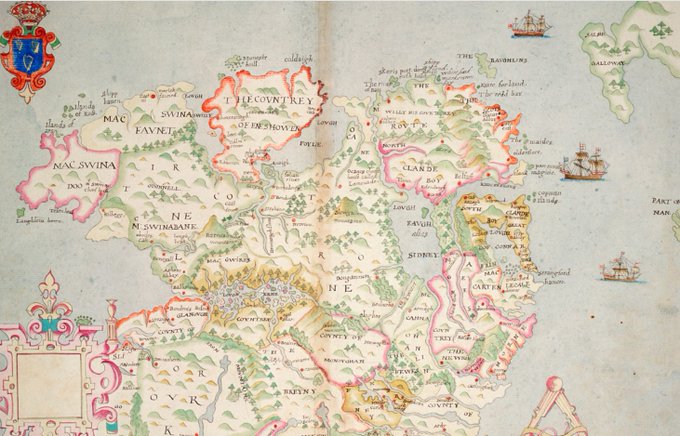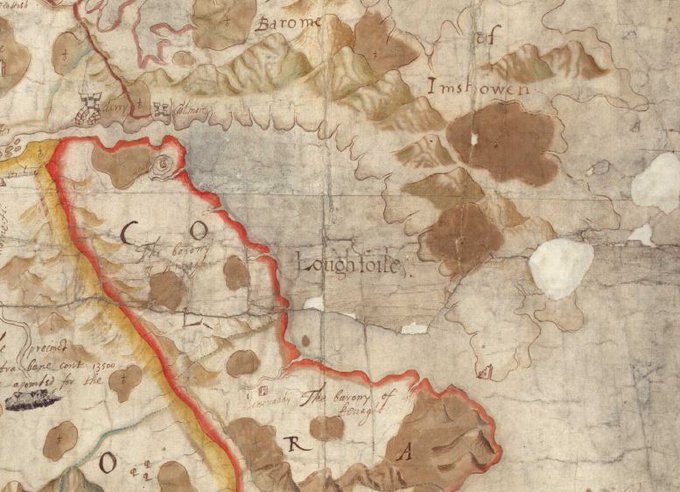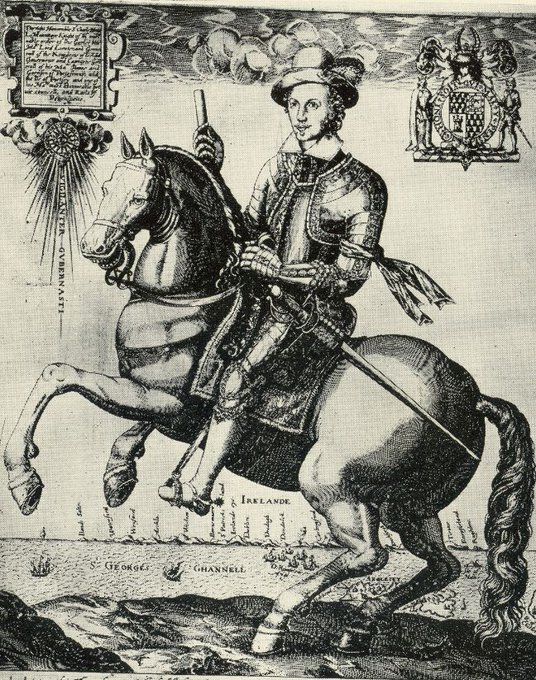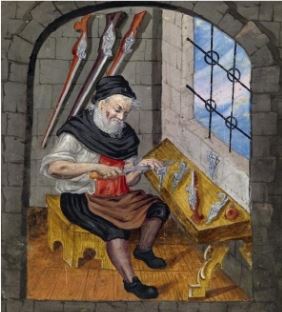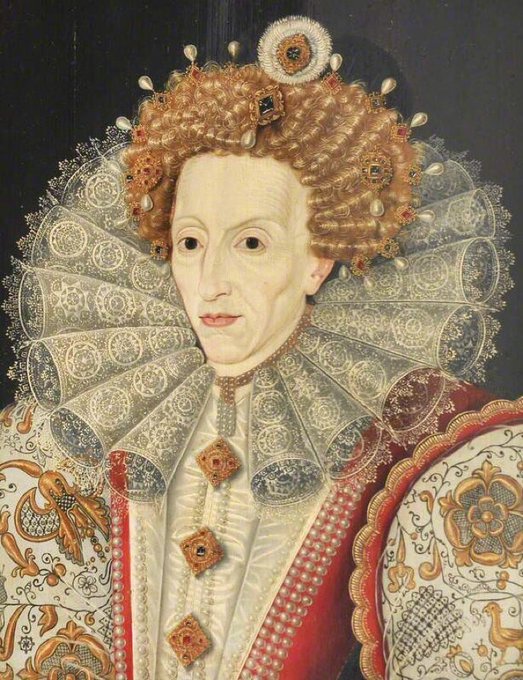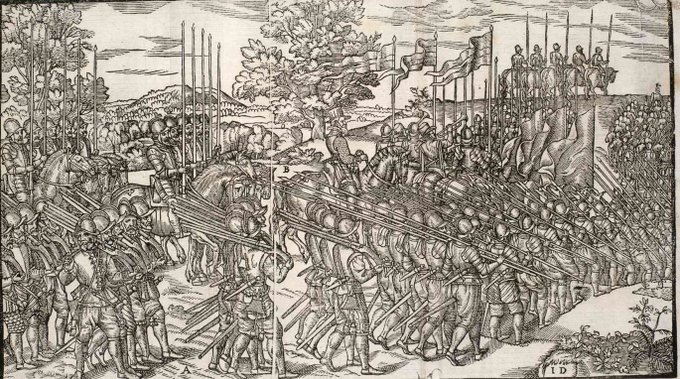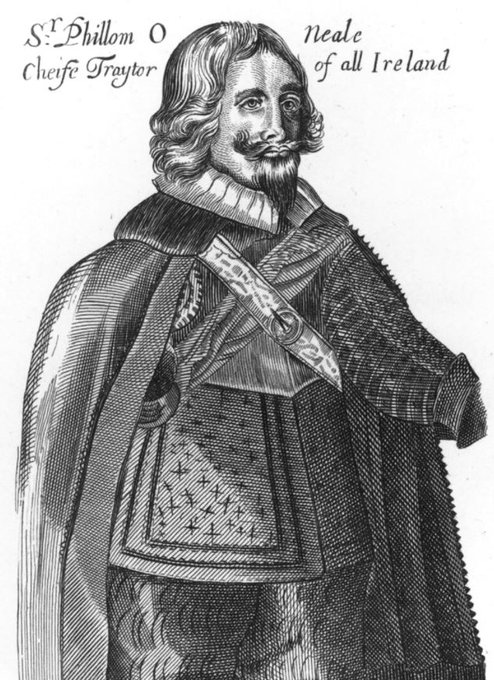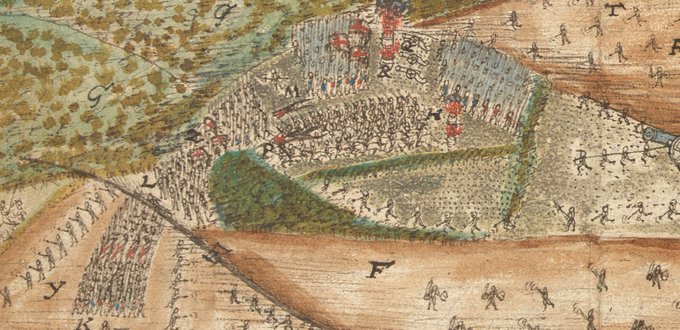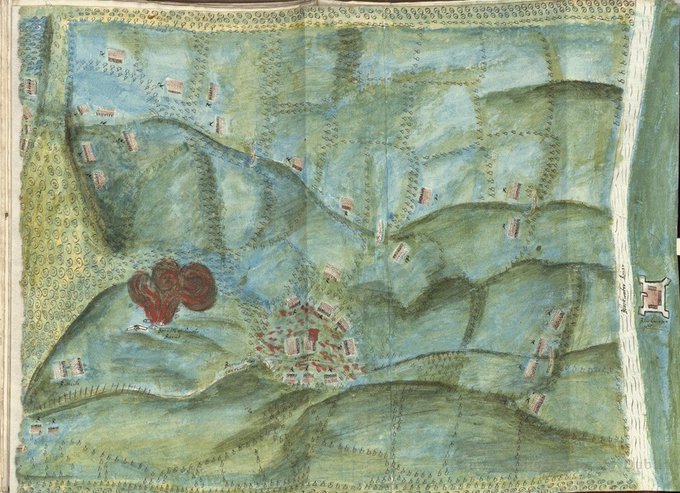If Tyrone had even a small number of old-style Gallowglass, the slaughter would have been much greater. But the Irish transition to the earl's modernised force meant the potentially decisive shock action of a few hundred heavily armoured infantry just wasn't available
Crown didn't understand this wasn't about killing troops, Tyrone needed to deflect the proposed landing of large army on the Foyle. Crown forced to send new army to protect Dublin rather than threaten Tyrone's hinterlands-big picture thinking by Tyrone exploited English arrogance
OTD 1600 Mountjoy tried to lessen troops gunpowder expenses, cost of powder used deducted from pay. He wanted crown to cover the powder used on campaign, on watches 'as charging and discharging of his piece in time of watches is of necessity' and during training' #nineyearswar
While in Dungannon Fitzgarret noted Tyrone’s stores; £2,000 of gunpowder and munitions. He also reported 'Scottish men making calivers and fowling pieces' These workmen had been sent by Alexander Stewart, a merchant of Glasgow, who also facilitated Tyrone's arms shipments
The same was also seen when Elizabeth castigated her advisors for describing the 'war' in Ireland. War was fought between sovereigns, the actions of Tyrone and his allies was rebellion. Getting a 'special military operation' vibe from over 400 years ago...
Mountjoy's army stood about 1,800 of which 'at least haft our force is Irish and can not be trusted'. Loyalties to Tyrone were firm 'for through the love of this people to the name of O'Neill be such as for reward they cannot yet be drawn to practise anything against his person'
Guess who wasn't doing the killing? Red Hugh O'Donnell. Maguire & Cormac MacBaron at Enniskillen, but as Crown army approached O'Donnell left to deal with a domestic issue with Scots, ordered his troops to stand down until he returned-Ford of Biscuits fought without his help
Parliamentary forces under Coote had besieged the fort for 6 weeks, using cannon and mortars to batter the position and a opened a siege mine from the eastern counterscarp, however after the failed assault, O'Neill & garrison forced to quit the fort but with full honours of war
@LandsknechtPike Bagenal's army wasn't disorganised, it was their ability to keep order under massive pressure that meant any of them survived
In his report to Dublin Clifford didn't mention how close his army came to annihilation. The weather had saved them but so too had Tyrone's reforms. The Irish depended on firepower not axes, a small reserve of galloglass would likely have finished Clifford- but they were gone



